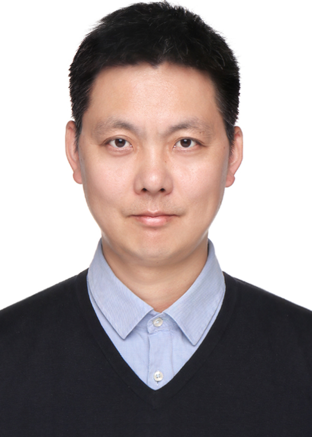Feng Weijun

Weijun Feng, Ph.D.
B.S. 2001, Huazhong University of Science and Technology, China
M.Sc. 2005, Heidelberg University, Germany
Ph.D. 2009, Heidelberg University, Germany
Postdoc training, 2010 –2017, German Cancer Research Center
Principal Investigator, since 2018, Fudan University
Institutes of Biomedical Sciences, Fudan University, Shanghai 200032 Tel: +86 18217781367
Email: fengweijun@fudan.edu.cn
Lab homepage:ibs.fudan.edu.cn/ab/24/c21164a240420/page.htm
Biography
Dr. Weijun Feng is a junior group leader in Institutes of Biomedical Sciences (IBS), and Children’s Hospital in Fudan University. He heads the lab of Neuro Epigenetics, with the aim to understand key role of chromatin regulation in neurodevelopment and to explore therapeutic approach. Dr. Feng received his M.Sc in molecular and cellular biology from Heidelberg University, Germany. He obtained his Ph.D. in molecular biology from German Cancer Research Center (DKFZ), under the supervision of Prof. Dr. Ingrid Grummt. Dr. Feng subsequently completed his postdoctoral training in molecular neurogenetics with Dr. Hai-Kun Liu in DKFZ.
Areas of Investigation
Function and molecular mechanism of chromatin remodeler CHD7 in development
The role of chromatin modification in brain size determination
Chromatin dysregulation in pediatric brain tumor
Research interest
Chromatin regulation is crucial for development, highlighting by the frequent mutations of chromatin regulators in developmental disorders. Our lab is interested in understanding the key function and mechanisms of chromatin regulation during neurodevelopment. By modeling neurodevelopmental diseases like CHARGE and OGID (overgrowth with intellectual disability), we investigate the potential therapy with the focus of epigenetic drugs. To achieve these goals, we make use of genetically modified mouse, 3D brain organoid and 2D cell models, with the state-of-art genetic, molecular and cellular approaches.
Selected publications:
1. Hu, M., Li, H.*, Huang, Z., Li, D., Xu, Y., Xu, Q., Chen, B., Wang, Y., Deng, J., Zhu, M., Feng, W*., Xu, X*. (2022). Novel compound heterozygous mutation in STAMBP causes a neurodevelopmental disorder by disrupting cortical proliferation. Front Neuro sci 16, 963813. 10.3389/fnins.2022.963813. (*corresponding author)
2.Cheng J#, Dong Q#, Lu Y, Shi L, Yao G, Wang C, Zhou C, Zhou Z, Huang Z, Han Z, Zhu M, Feng W*. CHD7 in oocytes is essential for female fertility. Annals of Translational Medicine2022; 10(5):260
3.Feng, W*., Shao, C., Liu HK. (2017) Versatile Roles of the Chromatin Remodeler CHD7 during Brain Development and Disease. Frontier Mol. Neuroscience 10:309 (*corresponding author)
4. Feng, W#., Kawauchi, D#., Korkel-Qu, H., Deng, H., Serger, E., Sieber, L., et al. (2017). Chd7 is indispensable for mammalian brain development through activation of a neuronal differentiation programme. Nat Commun 8, 14758. (#co-first author)
5. Feng, W., and Liu, H.K. (2017). Revealing the Hidden Powers that Fuel Adult Neurogenesis. Cell Stem Cell 20, 154-156.
6. Feng, W., Khan, M.A., Bellvis, P., Zhu, Z., Bernhardt, O., Herold-Mende, C., and Liu, HK. (2013). The Chromatin Remodeler CHD7 Regulates Adult Neurogenesis via Activation of SoxC Transcription Factors. Cell Stem Cell 13, 62-72.
7. Feng, W#., Yonezawa, M#., Ye, J., Jenuwein, T., and Grummt, I. (2010). PHF8 activates transcription of rRNA genes through H3K4me3 binding and H3K9me1/2 demethylation. Nat Struct Mol Biol 17, 445-450. (#co-first author)